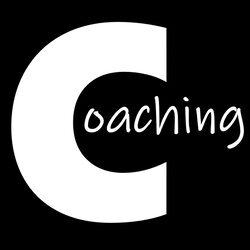Types of Mental Health
Common Mental Health Issues and How to Recognize Them.
There are many different types of mental health issues, and they are nothing to be ashamed of. As of recent estimates, about 1 in 8 people globally experience a mental health disorder. This translates to approximately 970 million individuals worldwide. Common mental health issues include depression, anxiety disorders, and substance use disorders. The prevalence of these conditions can vary based on factors such as age, gender, and socioeconomic status. The good news is, that most mental health issues can be treated successfully, and get you back to being happy, successful, and the best version of yourself
It’s important to note that mental health awareness has increased, leading to more people seeking help, but there is still a significant number of individuals who remain untreated. Access to mental health resources varies widely across different regions, impacting the overall numbers. Below is a list of some of the most common mental health issues, and how to recognize them.
1. Depression
o Summary: A mood disorder characterized by persistent sadness and loss of interest.
o Symptoms: Fatigue, changes in appetite, insomnia or hypersomnia, feelings of worthlessness, difficulty concentrating.
2. Anxiety Disorders
o Summary: A group of disorders causing excessive fear or worry.
o Symptoms: Restlessness, rapid heartbeat, sweating, irritability, avoidance of certain situations.
3. Bipolar Disorder
o Summary: A mood disorder marked by extreme mood swings from mania to depression.
o Symptoms: Euphoria, increased energy, impulsive behavior during mania; sadness, hopelessness during depressive episodes.
4. Schizophrenia
o Summary: A severe mental disorder affecting how a person thinks, feels, and behaves.
o Symptoms: Hallucinations, delusions, disorganized thinking, impaired functioning, lack of motivation.
5. Obsessive-Compulsive Disorder (OCD)
o Summary: A condition involving unwanted, persistent thoughts (obsessions) and repetitive behaviors (compulsions).
o Symptoms: Intrusive thoughts, excessive cleaning or checking, rituals to reduce anxiety.
6. Post-Traumatic Stress Disorder (PTSD)
o Summary: A disorder triggered by experiencing or witnessing a traumatic event.
o Symptoms: Flashbacks, nightmares, severe anxiety, emotional numbness, avoidance of reminders.
7. Attention-Deficit/Hyperactivity Disorder (ADHD)
o Summary: A neurodevelopmental disorder characterized by inattention, hyperactivity, and impulsiveness.
o Symptoms: Difficulty focusing, forgetfulness, restlessness, fidgeting, trouble following through on tasks.
8. Eating Disorders
o Summary: Disorders involving extreme attitudes toward food and body image, such as anorexia or bulimia.
o Symptoms: Obsession with weight, drastic weight changes, preoccupation with food, distorted body image.
9. Borderline Personality Disorder (BPD)
o Summary: A mental health disorder characterized by unstable moods, behavior, and relationships.
o Symptoms: Intense emotional reactions, fear of abandonment, impulsive actions, unstable self-image.
10. Social Anxiety Disorder
o Summary: An intense fear of social situations due to worries about being judged or embarrassed.
o Symptoms: Excessive self-consciousness, avoidance of social interactions, physical symptoms like sweating or trembling.
11. Seasonal Affective Disorder (SAD)
o Summary: A type of depression that occurs at a specific time of year, often in winter.
o Symptoms: Low energy, changes in sleep patterns, difficulty concentrating, withdrawal from social activities.
12. Panic Disorder
o Summary: Characterized by recurrent, unexpected panic attacks and fear of future attacks.
o Symptoms: Rapid heart rate, sweating, trembling, shortness of breath, feelings of impending doom.
13. Dissociative Disorders
o Summary: Disorders that involve a disconnection between thoughts, identity, consciousness, and memory.
o Symptoms: Memory loss, feelings of detachment, identity confusion, gaps in recall.
14. Substance Use Disorders
o Summary: Conditions involving the misuse of drugs or alcohol, leading to significant impairment or distress.
o Symptoms: Craving, withdrawal symptoms, loss of control over use, continued use despite negative consequences.
15. Autism Spectrum Disorder (ASD)
o Summary: A developmental disorder affecting communication and behavior, with a wide range of symptoms.
o Symptoms: Difficulty with social interactions, repetitive behaviors, sensitivity to sensory inputs, focused interests.
16. Generalized Anxiety Disorder (GAD)
o Summary: A chronic disorder marked by excessive worry about various aspects of life.
o Symptoms: Restlessness, fatigue, difficulty concentrating, irritability, muscle tension.
17. Agoraphobia
o Summary: An anxiety disorder involving fear of situations where escape might be difficult or help unavailable.
o Symptoms: Avoidance of crowds, public transport, or leaving home; panic attacks in feared situations.
18. Psychotic Disorders
o Summary: Disorders that cause a disconnection from reality, affecting thought processes.
o Symptoms: Delusions, hallucinations, disorganized speech, impaired functioning.
19. Intermittent Explosive Disorder
o Summary: Characterized by sudden episodes of intense anger or rage disproportionate to the situation.
o Symptoms: Frequent temper outbursts, physical aggression, feelings of tension before an outburst.
20. Acute Stress Disorder
o Summary: Similar to PTSD, this occurs in response to a traumatic event, with symptoms lasting from three days to a month.
o Symptoms: Intrusive memories, dissociation, avoidance, heightened arousal, sleep disturbances.
If you or someone you know is experiencing these symptoms, it’s important to seek professional help. Mental health issues can be complex, but support is available. If you need immediate emotional support you should call 1-800-273-8255 to connect to a counselor that can help.
